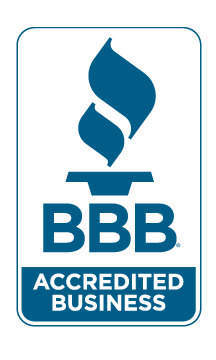January always brings clarity. The holidays are behind us. The calendar is fresh. And for most insurance agents, the past few weeks have been a long-needed rest—physically, mentally, and emotionally.
That reset is not something to feel guilty about. In this business, intense seasons must be followed by seasons of reflection. Burnout does not build strong careers. Sustainability does.
But now, as we move deeper into 2026, it is time to get back in the game—with intention.
Not with noise. Not with pressure. And not with empty “hustle” slogans.
With purpose.
I want to speak to you not only as an agency owner, but as a mentor who understands what it takes to build something that lasts. The goal is not just to write more business this year. The goal is to grow an insurance agency that is organized, ethical, and built for long-term success.
A Strategic Season for Medicare Agents
For many Medicare agents, early in the year can feel slow compared to AEP. The urgency of enrollment has passed, and the pace naturally changes.
But beneath that calm is one of the most important growth windows of the year.
Right now:
- Clients are reassessing finances after the holidays
- Household budgets are being rebuilt
- Health concerns from last year are becoming clearer
- Long-term planning is back on the table
This is not a dead season. It is a relationship-building season.
Your Medicare book of business is not the finish line—it is the foundation. Every client you helped last year represents a household that may still have unmet needs when it comes to protection, legacy planning, and financial stability.
This is where Final Expense insurance and Mortgage Protection insurance can be introduced ethically and responsibly.
When positioned correctly, these products are not “upsells.” They are solutions. They protect families from financial stress, debt burdens, and uncertainty.
The agents who experience consistent growth understand one thing: they are not just selling policies—they are protecting households.
Start with the Clients You Already Have
The easiest business you will ever write comes from the people who already trust you.
Not cold lists.
Not random leads.
Not gimmicks.
Your existing clients do not need to be “sold.” They need to be served.
This season is about reconnecting with intention.
Instead of asking, “Who do you know that needs insurance?”
Ask, “Has anything changed in your world since we last spoke?”
Instead of pushing a product, ask:
- “If something happened to you tomorrow, would your family be financially protected?”
- “Do you currently have anything in place for final expenses?”
- “Would debt or housing become a burden for your loved ones?”
These are not sales questions. They are stewardship questions.
Your job is not to convince. Your job is to uncover.
This mindset strengthens trust, improves retention, and naturally creates opportunities for cross-selling insurance products that truly benefit the client.
The Fact Finder: The Foundation of Ethical Cross-Selling
If you want to grow without pressure, burnout, or guesswork, you must master the fact finder.
The fact finder is not paperwork. It is a discovery framework.
Used correctly, it helps insurance agents:
- Identify protection gaps
- Understand family and financial dynamics
- Uncover risks clients may not recognize
- Open ethical opportunities for Final Expense and Mortgage Protection
This is where professionals separate themselves from transactional agents.
Instead of asking, “Do you want life insurance?”
You ask, “What would happen financially if you were no longer here?”
Instead of saying, “I sell Final Expense insurance,”
You say, “Let’s make sure your family is not left with unnecessary financial burdens.”
This approach positions you as a trusted advisor—not a product pusher.
And that is the foundation of client retention for insurance agents, long-term relationships, and sustainable agency growth.
Referral Strategies That Actually Work
One of the most important habits for 2026 is this:
Stop treating referrals as something that “might happen.”
Start treating them as a system.
Referrals are the most ethical and profitable way to grow an insurance agency. But they are not random. They are the result of:
- Consistent follow-up
- Genuine service
- Clear communication
- Organized client management
When clients feel taken care of, they naturally want to share that experience.
Instead of asking, “Do you know anyone else?”
Try: “If someone you care about needed the same kind of help, would you feel comfortable connecting us?”
You are not asking for business—you are offering value.
Make referrals part of your workflow:
- During annual reviews
- After policy placements
- After assisting with claims
- After solving a real client problem
This is how you build a predictable pipeline and implement insurance referral strategies that scale.
Why Systems Matter More Than Motivation
Every serious insurance professional eventually learns this:
Motivation fades. Systems scale.
You can start the year energized and still feel overwhelmed by March if your business lacks structure. Growth does not come from willpower alone—it comes from systems, data, and clarity.
That is exactly why we built Legacy CRM-AMS—a true CRM for insurance agents.
Not just software.
Not just digital storage.
But a complete insurance agency management system.
With Legacy CRM-AMS, you can:
- Track leads from first contact to conversion
- Manage clients, policies, and follow-ups in one place
- Maintain year-long production visibility
- Prevent lost opportunities due to disorganization
- Understand your numbers in real time
If you want 2026 to be different from 2025, you need more than good intentions. You need infrastructure.
This is about:
- Accountability
- Consistency
- Measurable growth
- Building a business you actually control
A full year of properly tracked leads, clients, and policies changes how you plan, forecast, and scale.
This is not micromanagement.
This is mastery.
Habits That Compound Over Time
Success in insurance is not built on one good month. It is built on consistent habits.
As you step fully into 2026, focus on these disciplines:
Daily Client Contact – Meaningful conversations, not just volume.
Weekly Fact Finder Reviews – Look for deeper ways to serve.
Consistent Referral Conversations – Make it part of your process.
Organized Lead Tracking – If it is not tracked, it cannot scale.
Monthly Business Reviews – Identify what worked and what needs improvement.
These habits drive predictable growth and help you transition from simply writing policies to building an insurance agency.
From Agent to Business Owner
Here is the shift I want for you in 2026:
Stop thinking like someone who just sells policies.
Start thinking like someone who is building a business.
A real business has:
- Systems
- Data
- Processes
- Predictability
- Long-term vision
That is what we are building at Legacy.
Not just agents.
Not just production.
But ownership.
You are not here to chase commissions.
You are here to create stability, freedom, and impact—for yourself and for the families you serve.
A Personal Commitment to Your Success
I do not see my role as management. I see it as mentorship.
I want you to:
- Grow income without sacrificing integrity
- Build confidence through structure
- Stop feeling scattered or reactive
- Create a business you are proud of
That is why we emphasize systems over shortcuts.
That is why we prioritize fact-finding over pressure.
That is why we invest in tools like Legacy CRM-AMS.
This business can change your life—but only if you treat it like a profession, not a side hustle.
Your 2026 Starts Now
You do not need another resolution.
You need a renewed standard.
This is your season to:
- Reconnect with your Medicare clients
- Identify who may benefit from Final Expense or Mortgage Protection insurance
- Strengthen referral habits
- Implement better lead tracking systems
- And step fully into ownership of your agency
Rest has done its job. Reflection has served its purpose.
Now it is time to execute.
I am committed to walking with you in this next chapter—helping you build not just income, but legacy.
Let’s make 2026 the year you stopped simply working in the business and started truly owning it.
© Copyright Legacy Agent, LLC











